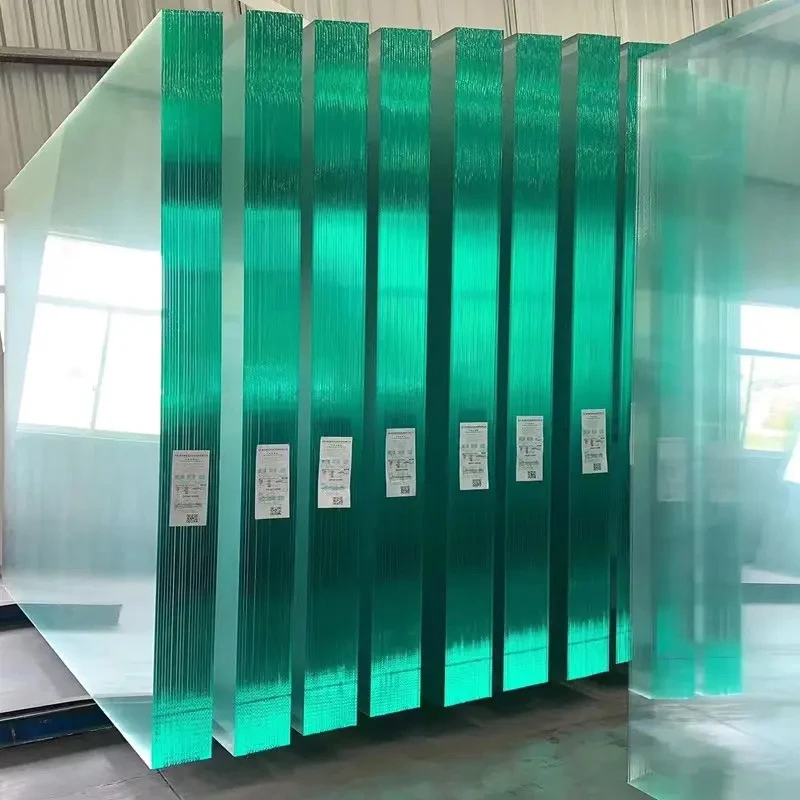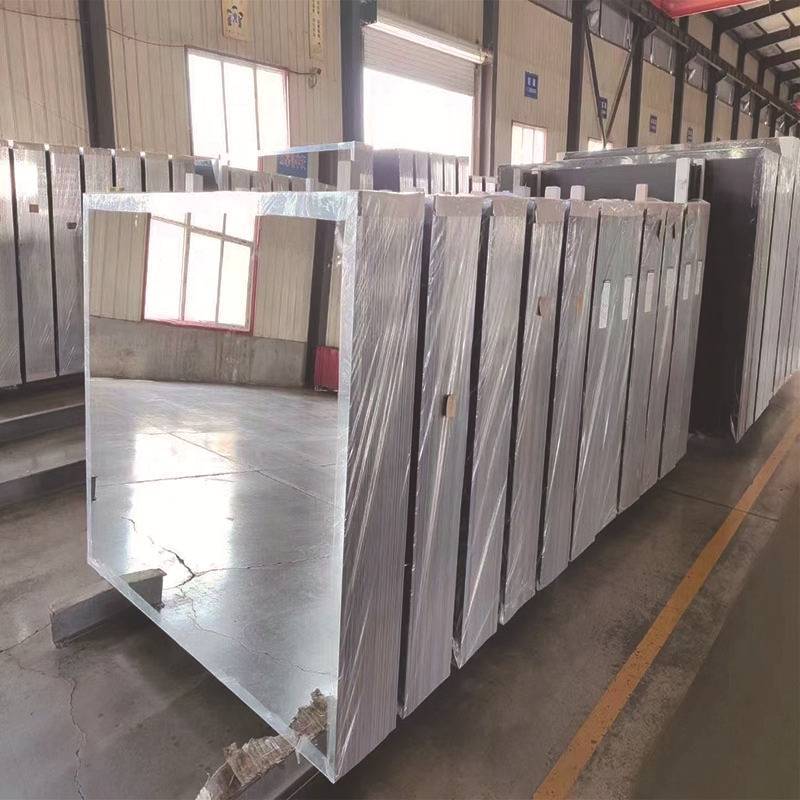Float glass, a revolutionary material that has transformed modern architecture and design, holds significant meaning in the contemporary product landscape. It’s not just a glass pane; it's a product born out of cutting-edge technology and innovative manufacturing processes that offer distinct advantages over conventional glass.

Imagine standing in front of a sleek building, its surface reflecting the sky so flawlessly that it seems to disappear into the horizon. Such an experience is often made possible by float glass, which is renowned for its smooth surfaces and optical clarity. This glass is named for its unique production process, where molten glass is literally floated on a bed of molten tin, resulting in perfectly uniform sheets. This method, pioneered by Sir Alastair Pilkington in the mid-20th century, revolutionized glass production, making high-quality glass available on a large scale.
The expertise involved in manufacturing float glass is a testament to the modern era’s engineering capabilities. Each sheet of float glass is meticulously monitored and controlled to ensure that it meets stringent industry standards. This involves precise regulation of temperature, chemical composition, and environmental conditions. The result is a material that is free from distortions and blemishes, with unparalleled visual clarity — essential for both structural and aesthetic applications.

Not merely confined to aesthetic enhancement, float glass has authoritative advantages in functional roles. In architecture, it enables expansive, unobstructed views while maintaining structural integrity. Its properties can be modified through various treatments to incorporate features such as increased thermal insulation, enhanced security, UV protection, and noise reduction. Such versatility demonstrates the wide-reaching implications of float glass in product development and engineering disciplines.
float glass meaning
The trustworthiness of float glass products lies in their proven track record and compliance with international safety standards. Reputable manufacturers ensure that each sheet undergoes rigorous testing, confirming it can withstand environmental stresses and contribute to the building’s energy efficiency. Consumers and industry professionals alike trust float glass for its durability and reliability in both residential and commercial settings.
For product developers, integrating float glass into design projects is a choice backed by substantial benefits. Whether used in automotive industries, where its optical precision minimizes visual distortions for drivers, or in technology sectors for high-definition display screens, float glass offers an unmatched combination of performance and aesthetic appeal.
As demand for sustainable and energy-efficient products grows, float glass emerges as a critical element due to its recyclability and ability to enhance the energy performance of buildings. Modern advances have even led to the development of low-emissivity (low-E) float glass, which reduces heat transfer, thereby contributing to climate control and energy savings.
In sum, float glass is more than a product; it’s an innovation that bridges the gap between aesthetic desires and practical needs. Its creation signifies a pivotal phase in material science history, embodying a blend of experience, expertise, authoritativeness, and trustworthiness that few materials can rival. As industries continue to evolve, the significance of float glass in developing superior products is likely to expand, driven by ongoing research and technological advancements.
 Afrikaans
Afrikaans  Albanian
Albanian  Amharic
Amharic  Arabic
Arabic  Armenian
Armenian  Azerbaijani
Azerbaijani  Basque
Basque  Belarusian
Belarusian  Bengali
Bengali  Bosnian
Bosnian  Bulgarian
Bulgarian  Catalan
Catalan  Cebuano
Cebuano  Corsican
Corsican  Croatian
Croatian  Czech
Czech  Danish
Danish  Dutch
Dutch  English
English  Esperanto
Esperanto  Estonian
Estonian  Finnish
Finnish  French
French  Frisian
Frisian  Galician
Galician  Georgian
Georgian  German
German  Greek
Greek  Gujarati
Gujarati  Haitian Creole
Haitian Creole  hausa
hausa  hawaiian
hawaiian  Hebrew
Hebrew  Hindi
Hindi  Miao
Miao  Hungarian
Hungarian  Icelandic
Icelandic  igbo
igbo  Indonesian
Indonesian  irish
irish  Italian
Italian  Japanese
Japanese  Javanese
Javanese  Kannada
Kannada  kazakh
kazakh  Khmer
Khmer  Rwandese
Rwandese  Korean
Korean  Kurdish
Kurdish  Kyrgyz
Kyrgyz  Lao
Lao  Latin
Latin  Latvian
Latvian  Lithuanian
Lithuanian  Luxembourgish
Luxembourgish  Macedonian
Macedonian  Malgashi
Malgashi  Malay
Malay  Malayalam
Malayalam  Maltese
Maltese  Maori
Maori  Marathi
Marathi  Mongolian
Mongolian  Myanmar
Myanmar  Nepali
Nepali  Norwegian
Norwegian  Norwegian
Norwegian  Occitan
Occitan  Pashto
Pashto  Persian
Persian  Polish
Polish  Portuguese
Portuguese  Punjabi
Punjabi  Romanian
Romanian  Russian
Russian  Samoan
Samoan  Scottish Gaelic
Scottish Gaelic  Serbian
Serbian  Sesotho
Sesotho  Shona
Shona  Sindhi
Sindhi  Sinhala
Sinhala  Slovak
Slovak  Slovenian
Slovenian  Somali
Somali  Spanish
Spanish  Sundanese
Sundanese  Swahili
Swahili  Swedish
Swedish  Tagalog
Tagalog  Tajik
Tajik  Tamil
Tamil  Tatar
Tatar  Telugu
Telugu  Thai
Thai  Turkish
Turkish  Turkmen
Turkmen  Ukrainian
Ukrainian  Urdu
Urdu  Uighur
Uighur  Uzbek
Uzbek  Vietnamese
Vietnamese  Welsh
Welsh  Bantu
Bantu  Yiddish
Yiddish  Yoruba
Yoruba  Zulu
Zulu 


